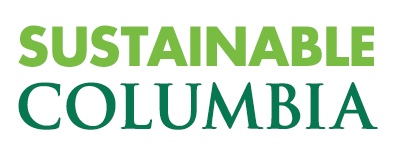Overview
Columbia commits to align with New York City’s zero waste goal through enhanced waste diversion programming, strategic procurement partnerships, and a robust sustainable events policy. NYC has committed to sending zero waste to landfill by 2030. Columbia’s first sustainability plan called for the quantification and subsequent reduction of waste generated on campus. Recognizing that reductions in waste need to be targeted efforts with unique tactics and buy-in from the community, Columbia has highlighted University events as a starting point for phase two of waste reduction efforts, with an eye toward creating a more sustainable purchasing policy and practice on campus, both centrally and at the individual level.
Goals and Strategies
- Expand organics collection, pending the return of the New York City Department of Sanitation (DSNY)'s pick-up program (temporarily suspended due to the COVID-19 pandemic).
- Continue to track Scope 3 emissions from waste and report to The Climate Registry (TCR) annually.
- Create a steering committee of industry experts to determine the most effective way to measure waste minimization progress and set a goal in those terms by 2022.
The Sustainable Events working group has launched a comprehensive approach to achieve zero waste University events, and four sub-working groups have begun to meet as of Fall 2020 to achieve these goals:
- Procurement
- Event Guidelines and Certifications
- Communications
- Infrastructure
These four sub-groups are actively working to drive the below strategies and actions.
Develop a comprehensive sustainable events strategy and accompanying communications plan that center on waste avoidance and reduction, and improved waste management practices.
- Collect and analyze data on sustainable events through an annual survey of event managers on campus to better inform future strategies.
- Review the effectiveness of existing standardization of campus waste receptacles, prioritizing those with event and departmental spaces.
- Develop educational resources and infrastructure for zero waste events, including the Sustainable Event Guidelines.
- Develop accessible communication channels for information sharing.
- Nurture and grow Columbia’s network of event planners through targeted listservs, annual surveys, and other tactics.
- Continue training staff and students through “Know Where To Throw” training.
- Identify a set of sustainability metrics and data points to which retail tenants must adhere.
- Add a sustainability clause into all requests for proposal (RFPs) and contracts with retail tenants. This will hold them to a set of sustainability guidelines and reporting requirements, aligned with the University’s sustainability goals, and keep them accountable through tracking of key metrics and data points.
- Require retail tenants, by contract, to align with University waste-hauling practices.
- Improve data tracking and governance of retail tenants through a centralized database.
- Create a sustainable procurement policy for events and beyond that minimizes waste coming onto campus, including:
- Food ordering guidelines
- Elimination of plastic cutlery
- Reduced packaging
- Identify minimum environmental standards for University vendors.
- Work toward creation of a catering RFP that reflects Columbia’s environmental standards and values.
- Overhauled waste receptacles with new signage, created in partnership with members of the Sustainable Leaders Network, complete with improved, widened lids on bins for easier accessibility.
- Removed personal desk-side bins and continue to encourage a central location for all bins.
- Despite a relatively stagnant diversion rate, the University now sends 95% of waste generated from academic buildings to a waste-to-energy plant, reducing the amount of waste sent to landfill to only 5%.
- Single-use plastics continue to be phased out in various schools and departments, replaced by water-filling stations where possible.
- The Sustainable Events working group conducted a survey with event planners on campus to establish a baseline of existing event sustainability practices and identify areas for improvement. This working group continues to regularly meet and work toward strategies, recently creating sub-teams to achieve progress in a variety of areas
- Created and published Sustainable Event Guidelines for the University.
CUIMC has completed a campus-wide waste management audit in 2024. The results of the audit will be implemented in a phased manner.
LDEO is aligned with all stated goals and strategies in this section.
Topics: Materials Management
Recent News: Materials Management
CUIMC Undertakes Waste Management Audit to Quantify and Reduce Waste Generated Across Portfolio
Responsible Materials Management is one of the key commitments under Sustainable Columbia’s Plan 2030. Columbia has committed to matching New York City's zero waste goal by 2030, which will require all campuses to accurately quantify waste streams.
Living Net Zero Initiative Launches with Aim at Scope 3 Greenhouse Gas Emissions
Representatives from Columbia’s schools and departments across all campuses join collaborative initiative
Student Capstone “Reducing Scope 3 Emissions from Food Purchasing” Leads Columbia to Sign on to NYC Plant-Powered Challenge
Columbia Dining and the Office of Sustainability partnered with the Climate School’s Undergraduate Program in Sustainable Development to offer a capstone project this fall semester as part of the program's senior Workshop in Sustainable Development course. The project explored ways of cutting Columbia's food-related emissions and led to Columbia’s participation in the New York City Plant-Powered Carbon Challenge.


